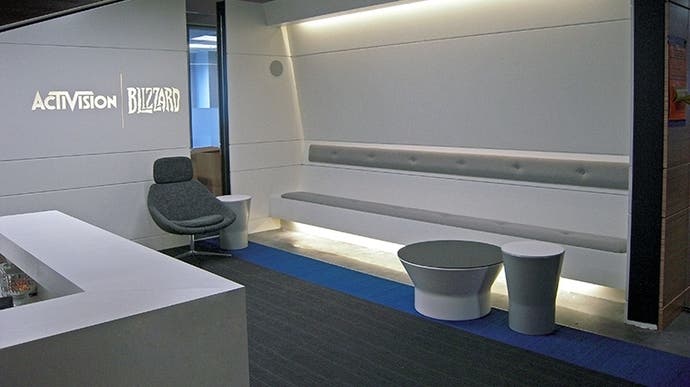More Activision Blizzard allegations emerge as former dev calls for industry unionisation
"... I have nothing to fear from unionisation."
More allegations about Activision Blizzard have emerged this week following the recent lawsuit filed by the State of California alleging pervasive discrimination and harassment against women at the World of Warcraft maker.
More than 2000 current and former Activision Blizzard employees signed a petition calling the company's response to the recent discrimination lawsuit "abhorrent and insulting".
Activision Blizzard's initial public comment on the lawsuit was to strongly deny its claims. An email then sent to staff by Activision Blizzard executive Fran Townsend, who was the assistant for homeland security and counterterrorism to George W. Bush from 2004 to 2008, has been heavily criticised by staff.
Amid a significant share price fall, Activision Blizzard boss Bobby Kotick told staff the company's initial response was "tone deaf". Hundreds of employees staged a walkout on Wednesday at Blizzard's Irvine, California headquarters, with many more virtually taking part around the world.
In the days since, more disturbing allegations have emerged.
CONTENT WARNING AHEAD.
An IGN feature published this week contains allegations from Activision Blizzard staff that back up much that is alleged in the State of California's lawsuit. According to IGN, women avoided drinking events at Blizzard because of their reputation, and circa 2015, women were subjected to inappropriate touching in the chest area and elsewhere in Blizzard's main office.

Activision Blizzard told IGN Blizzard implemented a two drink limit at company events in 2018.
IGN also reports that at one point, a room at Blizzard designated for breastfeeding didn't have locks, with one source saying "men would walk into the breastfeeding room. There was no way to lock the door. They would just stare and I would have to scream at them to leave".
IGN said breastfeeding rooms now have locks on the doors.
Waypoint reported that Blizzard recruiters asked a security researcher if she "liked being penetrated", among other inappropriate comments, at a job fair in 2015.
Two years later, Blizzard contacted a security company at which the researcher in question was chief operating officer.
The CEO of the company, Jeremi Gosney, wrote a scathing response to Blizzard outlining the incident, issuing three conditions upon which the two companies could work together. One of these was charging Blizzard a 50 percent "misogyny tax", the proceeds of which would be donated to Women in Technology International, Girls in Tech, and Girls Who Code.
Gosney took to Twitter last night to say "Blizzard had no interest in agreeing to our conditions", and "they still owe" the COO a formal written apology.
Blizzard declined to comment.
Meanwhile, Waypoint reported that in 2018, a former Activision Blizzard worker installed cameras in a bathroom at the company's sales and quality assurance office in Minnesota with the intent to spy on employees while they used the toilet. The employee was given a suspended prison sentence.
The New York Times posted an account of a former Activision Blizzard customer service employee who alleged she once declined drugs her manager offered at a holiday party, which hampered her career, and that a manager messaged her on Facebook to ask inappropriate questions of a sexual nature.
A former vice president alleged an executive asked her to have sex with him "because she 'deserved to have some fun' after her boyfriend had died weeks earlier".
Bloomberg addressed the question of whether Activision Blizzard will now listen to employee demands. A spokesperson for the employees who organised the Blizzard walkout told Bloomberg management has not even acknowledged their demands, which include ending mandatory arbitration clauses in worker contracts, hiring and promoting more diverse candidates, publishing salary data and allowing a third party to audit Activision''sreporting and human resources procedures.
An Activision spokesperson's response was described as "generic". "We know there are a variety of topics that need to be considered," Activision Blizzard said.
Unionisation has long been suggested as an option for video game developers, although they currently do not exist in North America.
This week, Jeff Strain, who used to work at Blizzard before going on to co-found Guild Wars developer ArenaNet and then State of Decay developer Undead Labs, penned a letter, published by IGN, advocating for unionisation within the games industry, and even told his employees to unionise with his full support.
In the letter, Strain said he was part of a "cataclysmic meeting" in 1998 with one of the Blizzard founders over "our objections to dismembered and impaled female body parts in the beta version of Diablo". After this meeting, Strain and his wife began planning to leave Blizzard.
"... I have nothing to fear from unionisation, nor does any company that pays employees fairly and equitably, provides quality health insurance, models respect and civility for female, POC, LGBTQ+ employees, and supports a healthy, whole life," Strain said.
What's to become of the State of California's lawsuit against Activision Blizzard? According to the Washington Post, some labour law experts believe the case is likely a strong one for the plaintiffs, with one expert saying they do not expect the case to be thrown out early.
Activision Blizzard must now either respond to the lawsuit's claims within 30 days of being served, or question a procedural aspect of the case. If a judge lets the case proceed, we're looking at the discovery process before the judge decides if the case warrants going to trial.
Meanwhile, Activision Blizzard has drafted in lawfirm WilmerHale to "review" the company's HR policies. WilmerHale, as Kotaku noted, is the same law firm helping Amazon keep its workers from unionising.
California's Department of Fair Employment and Housing (DFEH) is also involved in the ongoing case against League of Legends maker Riot Games. DFEH objected to a proposed settlement of $10m, saying the figure could be as high as $400m.

